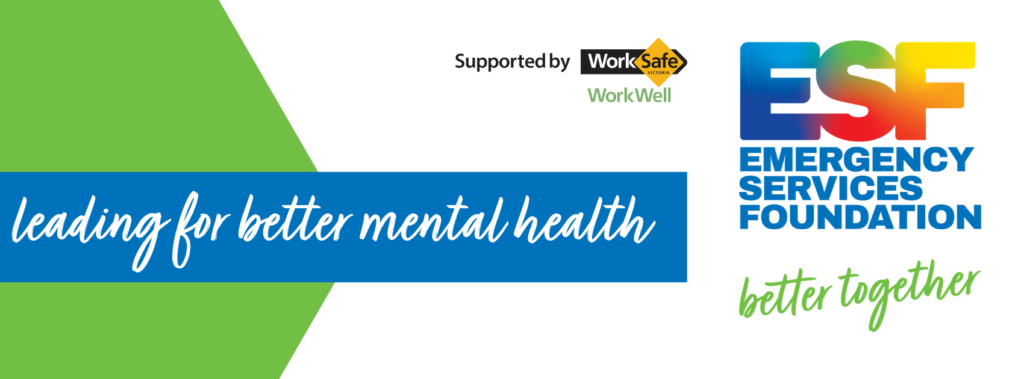Team leaders play a pivotal role in shaping workplace culture. They can be a powerful protective factor for wellbeing or, if not supported, they can cause harm.
Leading for Better Mental Health is a unique, evidence-informed program designed to strengthen leaders’ capacity to create and sustain psychologically safe teams. Built on an action learning approach, it goes beyond theory: participants learn by doing, embedding practical strategies that improve leadership capability, workplace mental health and their organisation’s culture.
This is not a typical leadership program. Guided by two highly regarded facilitators with expertise in leadership development, mental health and organisational culture, Leading for Better Mental Health equips leaders to address the real and complex challenges faced by team leaders.
Designed to meet the needs of people working in emergency management, the program can be tailored to suit other sectors seeking to enhance mental health and wellbeing outcomes as they prepare for the introduction of new Psychosocial Regulations.
👉 Download the Program Prospectus for details on structure, outcomes and costings.
If you are interested in applying Leading for Better Mental Health to your organisation, you can express your interest below.
Expression of Interest: Leading for Better Mental Health Program
Leading for Better Mental Health has been successfully delivered across emergency services and is now open to all sectors and industries. If you’d like to explore how this program could be applied in your organisation, in any state or sector, please register your interest below and we will be in touch.

Leading for Better Mental Health was a pilot program that ran from March 2021 to February 2022 with support from WorkSafe WorkWell.
It was an innovative learning approach to leadership development that was evidence-based and co-designed by the Learning Network. The program helped team leaders:
- understand workplace risk factors
- recognise their impact on others
- confidently lead with a focus on creating a mentally health workplace
The pilot was trialled in two phases:
- a multi-agency pilot (online and face to face) that ran every few weeks over eight months with 52 participants from 12 emergency management organisations.
- a single-agency pilot for 25 DEWLP team leaders that ran in two, two-day blocks spaced three months apart with coaching in between.
In partnership with the Charles Sturt University Workforce Wellness Research unit, the pilot was evaluated for quality, content and delivery as well as the difference it makes to leaders and their teams. The multiagency and single-agency evaluation reports found the program is a highly effective early-intervention program for workplace mental health.
An executive summary of the two modes of pilot delivery can be found here
Not another training program
There are 4 main features that set Leading for Better Mental Health apart and geared it for success.
- It takes a sector wide approach that brings staff and volunteers together from different agencies. This has never been done before
- It uses mentoring, coaching and peer-to-peer reflection to develop personal insight and test new leadership approaches
- It is skill-based and practical, with an emphasis on application in the workplace. The program provides time and space to reflect on new ways of leading. Learnings are practical and will be directly applied in the workplace
- It will bring CEOs into the conversation with team leaders about barriers to leading for better mental health so systematic change can happen.
Methodology
In 2020, the ESF Learning Network engaged in conversations and data gathering about barriers and enablers to positive mental health and wellbeing for staff and volunteers in the emergency management sector.
Members of the Learning Network determined that improving how leaders are developed – not executives but specifically people who lead teams – will address a range of workplace risk factors. After all team leaders have the most direct influence on the day-to-day experience of people in the workplace.
The Learning Network saw an opportunity to drive innovation and consistency for sector-wide impact by working collaboratively on this shared challenge.
Using the method of co-design, the Learning Network developed a pilot for leaders working in emergency services. This program was informed by a review of best practice, a scan of current leadership and mental health training programs. We also listened to team leaders, they told us they were often promoted from task-oriented roles and felt ill-prepared to lead and nurture mentally healthy work environments.

ESF acknowledges the support of the Victoria State Government in the development and running of Leading for Better Mental Health.
